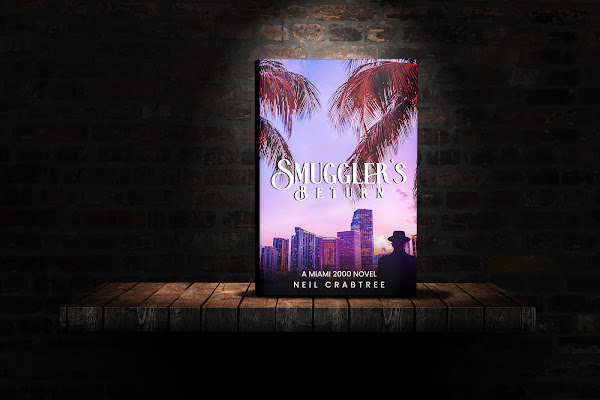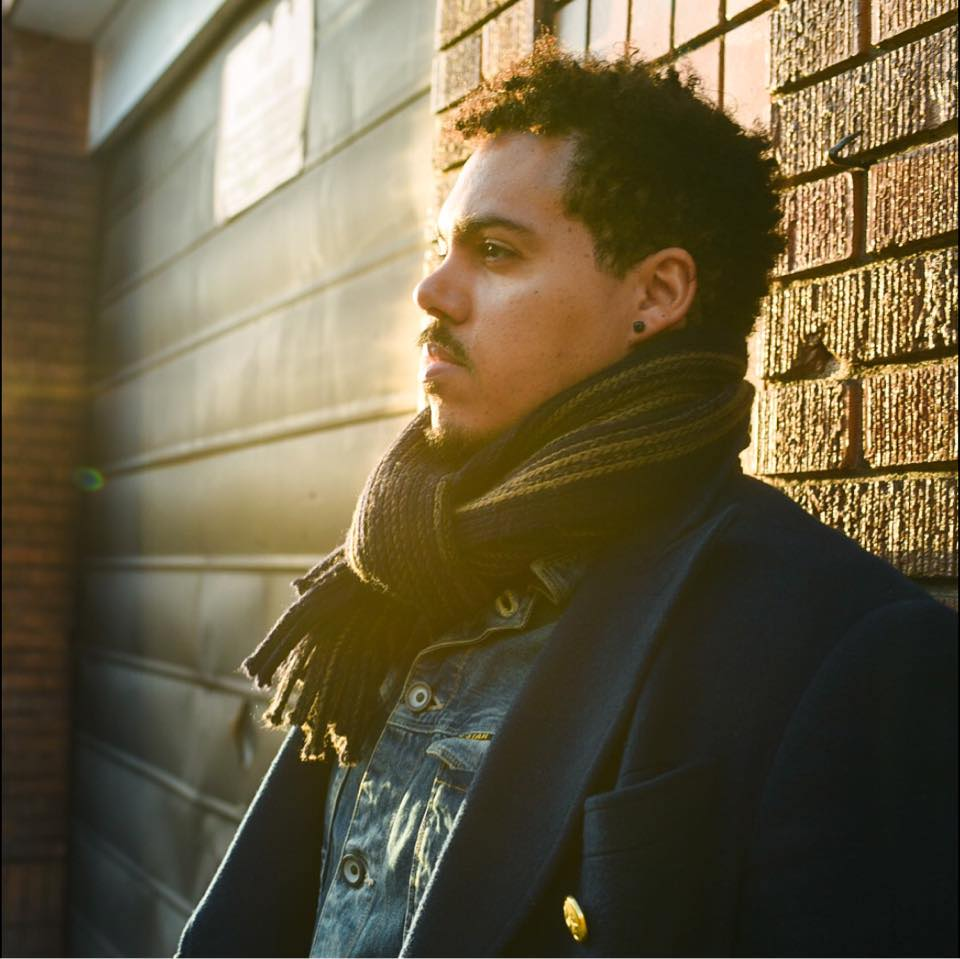10 Questions for Neil Crabtree
Q: Your latest book Smuggler's Return bears the subtitle
"A Miami 2000 Novel" on the front cover. Why?
A: The story is about two friends who smuggled marijuana from Colombia in the 1980 time period and by the year 2000, they've gone their separate ways. But even the year 2000 is a different era from what we live through in 2024. There was no Uber, for example. Cellphones had limited range and roaming charges. There were still retail computer stores, and Amazon was more of a rumor than anything else. No medical marijuana dispensaries, no legal pot anywhere. Yet we all lived through it, with pretty much the same hopes and dreams as today.
Q: The main character Rooster is working hard to stay straight but carries his past with him everyday. His old partner Johnny Fallon shows up though he is supposed to be in prison. There are two rogue federal agents running Fallon to steal thousands of dollars from drug traffickers who thought they'd safely retired. Fallon wants Rooster to work with him collecting money but Rooster tells him NO. Why is Rooster unwilling to help his old partner?
A: Rooster himself had been busted. While in prison, his rich wife Alicia divorced him and married his trial lawyer Sheldon Teller. Alicia and Sheldon have raised Rooster's son and given him all the best things in life. Now a teenager, Chris still loves his father but understands that Rooster gave up custody while incarcerated. Rooster works everyday running a computer business to set a good example and to show that The Business (as smuggling was known in those days) was no longer part of his life.
Q: Rooster has two different love interests, his ex-wife Alicia, and the married daughter of his second wife Miriam, Paula. Both are strong characters and important to the story. How did that come about?
A: Love is the driving influence in all our lives. For Rooster, his first marriage to Alicia was strongly influenced by his role as a smuggler. The Jimmy Buffett song "A Pirate Looks At Forty" would be a perfect theme for Rooster and Johnny Fallon. "Made enough money to buy Miami, but pissed it away so fast" is a line Buffett came up with because he knew guys like Rooster and Johnny Fallon. After the money is gone each has to find a way to live. Fallon needs to find more money. Rooster needs to find something better.
Q: How did you come up with the idea of the smugglers and their affairs?
A; In the late 1970's, the best pot in the world was Colombian Gold. Florida was its main port of entry. Before the Cocaine Cowboys and Miami Vice, running reefer was the new version of Rum Running. Every beach bar on either coast had locals with stories of pot smuggling on their fishing boats, shrimpers, yachts and small plane. On a dare I went to Barranquilla Colombia looking for adventure. I found plenty, and lots of smuggler stories, and came to love the world of the marimberos. I met my wife Doris there and we have been together ever since.
Q: What is the DooMee Device and how does it play into the story?
A; I came up with a device that combined Virtual Reality with America's obsession with sex and image. Traditional crime novels have a formula that I can't tolerate. I wanted to say that there isn't a lot of difference between wanting to get high and get laid, and wanting to get pumped and get laid. The DooMee is technology's answer to Viagra. I put it in as a product Rooster's computer company signs up to distribute, though Rooster dislikes everything about it. The marketing campaign in the book for DooMee is a backdrop for the crime story of Fallon desperately trying to get rich again. Two get-rich schemes as crazy as can be.
Q: What kind of readers do you look for?
A: There are millions of us Baby Boomers who lived through Woodstock and Vietnam and friends getting busted for pot, who became Deadheads or Parrotheads and went to some of the most incredible rock'n'roll concerts that ever happened. We know that time has come and gone, but it is alive in our hearts. Smuggler's Return was written in that spirit.
Q: How long have you been working on Smuggler's Return?
A: I've written two complete versions of this novel. One I published as The Barricades of Heaven. I published, I Unpublished. It's wonderful to have the freedom to do that, the control of what goes out under my name. But the book has been through at least thirty proof-readers and I have had terrific editorial help. To say I have twelve years invested in this novel is an understatement.
Q: Do you have another novel in the works?
A: I have been working on another Miami based novel for years and am now in the fifth draft. That's the thing. No matter how you publish, a serious writer knows the real story is in the revisions, the edits, the feedback from other writers. Not Dead Yet will open with a closed door murder, follow a family fighting for control of its empire, and feature a smuggler's ghost come to tell of his murder. Like Hamlet. By the end of the year I'll be ready.
Q: There's also a short story collection, right?
A: My story collection is called Believable Lies and is being revised currently for Kindle and paperback sales. The stories appeared in different eZines like VerbSap, Bewildering Stories, Denver Syntax, and American Fiction Vol. 11. The stories cover twentieth century life through several different points of view. Some stories are still on line. Look at "LIVE BAND TONIGHT". It still pops up.
Q: Any advice for those starting their literary careers?
A: Find a good indie bookstore and go to every Author Reading you can. Look at your local colleges and universities for MFA programs and associated writers groups. Read a lot, but not formula bestsellers, unless that is your goal. Read read read. Write write write. And then get people to read what you write and give honest feedback. That works.








